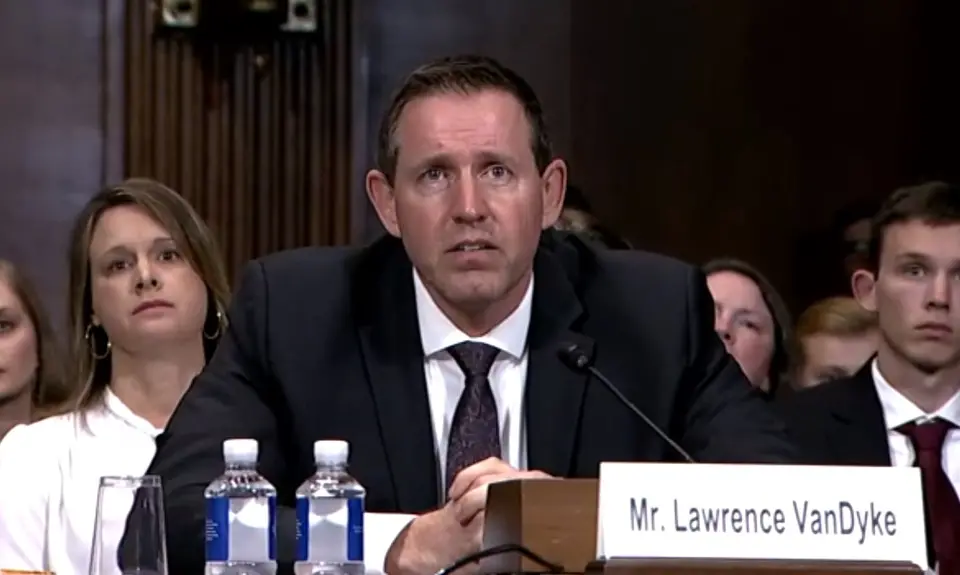“Confirmed Judges, Confirmed Fears” is a blog series documenting the harmful impact of President Trump’s judges on Americans’ rights and liberties. Cases in the series can be found by issue and by judge at this link.
Trump Ninth Circuit judge Daniel Collins, joined by Trump judge Lawrence VanDyke, reversed a district court and ruled that a Comcast subscriber could not seek relief for himself and others against the corporation’s privacy and data-collection practices, and instead must arbitrate his individual claims against it. The September 2021 decision was in Hodges v Comcast Cable Communications LLC.
Brandon Hodges subscribed to Comcast cable television services from his home in Oakland, California. In February 2018, he terminated his contract and filed a state court lawsuit, on behalf of himself and other subscribers, seeking injunctive and other relief against Comcast for violating subscribers’ statutory privacy rights by using its cable connections to collect data about “subscribers’ television viewing activity” plus “personally identifiable demographic data” without their knowledge or consent.
Comcast removed the case to federal court and tried to force Hodges to arbitrate his individual claims with the company rather than proceeding with the class action, pursuant to a standard clause in his subscriber agreement. The district court rejected the Comcast motion, based on a California precedent that makes unenforceable such arbitration provisions that waive a consumer’s right to seek “public injunctive relief” from a corporation through litigation. Comcast appealed.
In a 2-1 decision, Trump judges Collins and VanDyke reversed and ruled for Comcast. Although they acknowledged the “public injunctive relief” rule, they maintained that Hodges was not really seeking such a remedy. According to them, “public injunctive relief” must involve efforts to obtain “forward-looking injunctions that seek to prevent future violations of law for the benefit of the general public as a whole.” In addition, the majority claimed that the injunctive relief sought by Hodges would require “consideration of the individualized claims of numerous cable subscribers” and is thus not “public injunctive relief.” The majority thus ruled that Comcast’s motion to compel arbitration of Hodges’ individual claim should be granted and that his class action could not proceed.
Judge Marsha Berzon explained in dissent why Hodges’ proposed “forward-looking injunction protecting the privacy rights of millions of cable consumers” was clearly “public injunctive relief,” and why the Trump judges’ ruling to the contrary was wrong and “contrary to our precedent.” The case was “indistinguishable,” she went on, from several recent decisions that held that an injunction “affecting the contract terms a business could offer to members of the public qualified” as such relief. As in those cases, Hodges’ proposed injunction need not benefit “every” member of the general public, but “any member of the public” who considers entering into a contract with the offending business. Berzon also rejected the argument about consideration of “individualized claims,” noting that this would not be necessary since an injunction against Comcast would simply require it to “adopt new operating procedures going forward” that would protect the privacy interests of subscribers. In short, Berzon concluded, the majority had “failed to provide a convincing rationale” for its “untenable” ruling that Hodges was not seeking “public injunctive relief,” and his class action should have been allowed to go forward.
As a result of the decision by Trump judges Collins and VanDyke, however, Hodges’ class action to benefit “millions of cable consumers” will not proceed, and a bad precedent has been set with respect to the availability of broad relief against corporations that harm consumers. President Biden has submitted Ninth Circuit nominees who would not bend the law in ways that favor business interests in future cases involving corporations and consumers. This decision thus illustrates the importance of prompt Senate confirmation of Biden nominees to the Ninth Circuit and elsewhere, as part of our fight for our courts.
